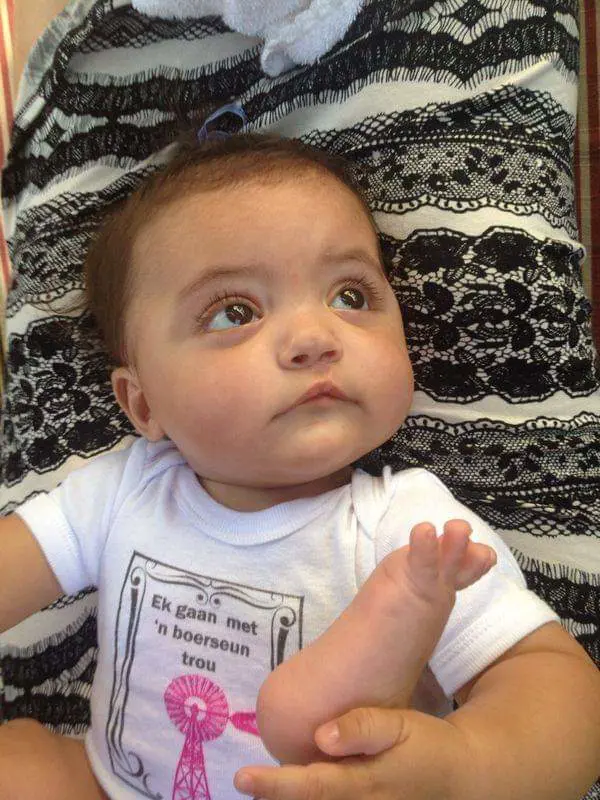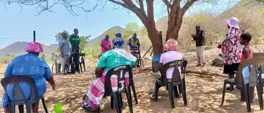A parent's journey with a child born with cleft conditions
Palesa Manaleng
11 June 2024 | 5:22Anri Vermaas, whose youngest child, Jani, was born with cleft lip and palate, discusses how her family dealt with the condition.
JOHANNESBURG – Globally, cleft conditions are among the most common birth defects, posing serious health and psychological challenges when left untreated. Patients often require multiple surgeries as they grow, and the mouth develops.
A smile introduces you to any space.
Anri Vermaas found out 24 weeks into her pregnancy that her youngest child, Jani, would be born with cleft lip and palate.
"Jani was just over one year after her last operation. Sometimes other children will ask about her small scar, and she would tell them exactly what it is and that she is very special to have it," said Vermaas.
READ: Operation Smile South Africa puts team together to help kids in Mpumalanga smile
She told Eyewitness News that Jani had two operations but was doing great after a series of therapy sessions but would need braces soon.
"Jani recovered very well after both her operations. As parents, you are unprepared for all the hurdles you face. We did speech therapy from when she was two-years-old that helped a lot. At this stage, Jani needs to see an orthodontist for braces; our medical aid doesn't cover it. We're postponing this process due to our finances."
The incidence of cleft lip and cleft palate in SA is estimated to be 0.3/1,000 live births, with research conducted by the South African Medical Research Council (SAMRC) showing a greater prevalence of babies born with cleft conditions to mothers living in areas with high levels of air pollution during their pregnancy.
"Although we still don’t know exactly what causes these conditions, there are many known risk factors that can increase the likelihood of a baby being born with cleft lip or cleft palate. Genetics and family history, pre-existing medical conditions, poor nutrition and exposure to harmful environmental substances, for example, smoke inhalation from cooking over an open fire, can affect the healthy development of an unborn baby," said coordinator of Programme Operations for Operation Smile, Fiola Lujabe.
The cost of the surgeries runs into several hundreds of thousands of rands and increases depending on the severity of the condition and how many surgeries are required.
"I tried to contact the SMILE Foundation and asked for emotional support but had no answer from them. My family was my biggest support. My father researched to find the best doctor and how to support me. My husband came in contact with a WhatsApp group, Cleft Support Group. This is a group of moms, all with cleft babies/children. They support each other and give advice out of their own experience, " Anri explained
For a child growing up with an unrepaired cleft, having to sound and look different from their peers can be a blow to their self-esteem.
"The psychological impact of living with an unrepaired cleft is serious for the child and their family. Parents of our patients report the trauma of giving birth to a child who looks different and has difficulty feeding. In some communities, where the causes of the cleft are not well understood, the mother can be ostracised and blamed for the child’s condition," said the coordinator of Programme Operations for Operation Smile, Fiola Lujabe.

Get the whole picture 💡
Take a look at the topic timeline for all related articles.

















